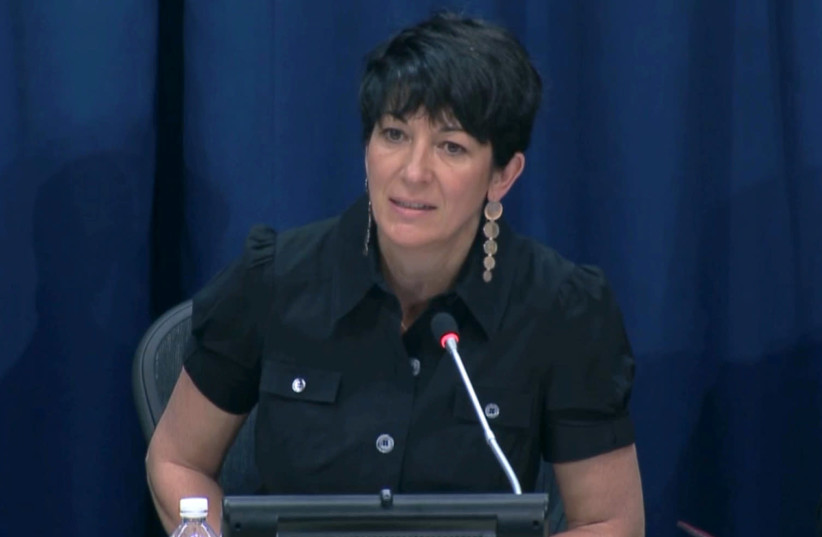Alan Dershowitz’s response to the BBC’s apology for interviewing him about the conviction of Ghislaine Maxwell, which was published in The Jerusalem Post (January 20), manipulates the facts about his interview and is in itself a continuation to his public campaign to discredit and besmirch Virginia Giuffre.
In its statement, the BBC said it had interviewed him without providing disclaimers. “Dershowitz was not a suitable person to interview as an impartial analyst and we did not make the relevant background clear to our audiences,” the statement read.
In his piece, Dershowitz argues that he explicitly said to the BBC interviewer that he was not a neutral commentator, since he himself was accused by Giuffre of wrongdoing. He explained the BBC’s statement as an outcome of public pressure not to give accused sex offenders media platforms. He laments that in today’s political climate it is only acceptable if a platform is given to the accuser and not to the accused. This is unfair toward those who are falsely accused of sexual misconduct, as he himself claims to be.
However, in the BBC interview Dershowitz did not, in fact, reveal the full extent of his involvement in the Epstein affair and accepted his introduction as a constitutional lawyer being asked to provide analysis on Maxwell’s verdict. He enjoyed his status as an expert and immediately used it to discredit Virginia Giuffre. Only after doing this does he admit, very briefly, that Giuffre had named him as a sexual predator among a long list of other people, including Prince Andrew, Ehud Barak and others. He did not mention the defamation suit he filed against Giuffre and the fact that he had represented Epstein in the past.
Dershowitz began the interview by giving his expert opinion, which is that the most important takeaway from Maxwell’s trial was that Giuffre did not testify. Her absence from the trial on behalf of the plaintiffs was because she was not deemed a trustworthy witness, according to Dershowitz. In fact, he claims, that she did not testify even weakens her civil suit against Prince Andrew, since it clearly proves that she is not considered credible. Despite the BBC interviewer’s visible attempts to divert the conversation back to Maxwell’s conviction, Dershowitz repeated his argument against Giuffre a number of times.

Dershowitz’s assertion that Giuffre not testifying is the most important takeaway from the trial is not exact. The truth is that the most important takeaway from the trial is not that Giuffre did not testify, but that Maxwell’s conviction finally brought justice to the victims, who were denied it when Epstein committed suicide. In fact, that Giuffre did not testify has very little to do with the trial and the conviction. There was an ample amount of information that Dershowitz, as a celebrated lawyer, could have analyzed.
The fact that he took advantage of his introduction as an important lawyer to argue that Giuffre’s absence was the most important takeaway from the trial and then used this to discredit Giuffre for his own purposes was wrong. This is exacerbated by the fact that in his description of the BBC interview to the Post he once again took advantage of his prestige to gain access to a leading newspaper.
Furthermore, the claim that Giuffre was not chosen to testify because of being deemed untrustworthy is itself misleading. He presents this as fact and not as speculation. There may be a number of other reasons for Giuffre not testifying. As well, the proof he gives for her lack of credibility is evidence that he himself provided to Maxwell’s prosecutors. Why in the past did he help the prosecution against the partner of his friend and former client?
He describes his motive thus, “If prosecutors have doubts about the credibility of Prince Andrew’s accuser, the British public should be made aware of the basis for those doubts.” In other words, he portrays himself as innocently offering to help the prosecutors by warning them that Giuffre is a bad witness, yet fails to mention that it is clearly in his best interest for Giuffre not to testify so that she does not implicate him under oath. Dershowitz adds to this the claim that since Giuffre admitted to bringing other girls to Epstein’s mansion, she is actually complicit in the crime, yet fails to mention that Giuffre has not been accused by any of the victims as taking part in the crime, and no one has accused her of doing so other than Dershowitz himself.
The BBC statement backtracking on the interview is appropriate. The reason the BBC should not have interviewed him without proper context is not because of a McCarthyism censorial attitude or fear of victim shamming, as Dershowitz claimed, but precisely because Dershowitz used the platform for his personal gain. His ensuing attack in the Post of the BBC’s apology as something that raises fundamental questions about the role of the media in reporting on disputed allegations of sexual misconduct serves as further support that the BBC was right.
The writer is a breaking news editor at The Jerusalem Post and a freelance content writer and translator at ConText.
